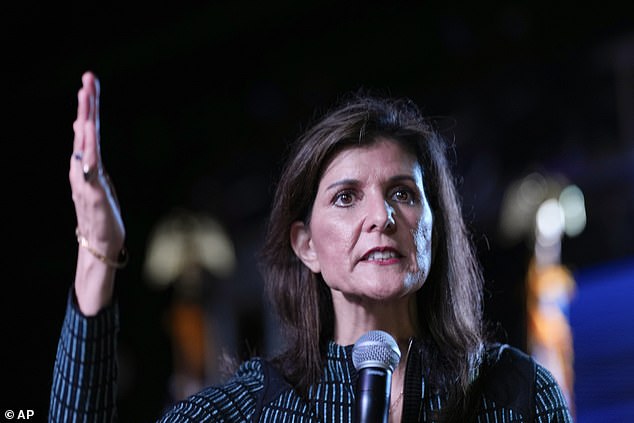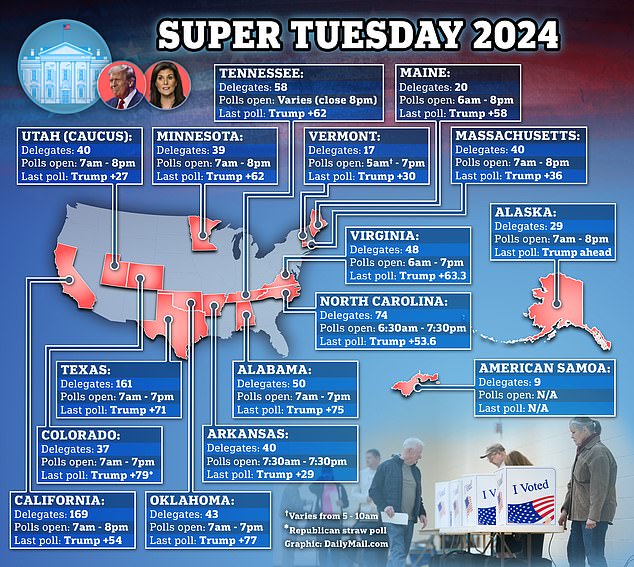Trump beats Nikki Haley again by winning the North Dakota Republican presidential primary
Donald Trump has defeated Nikki Haley again by winning the Republican primaries in North Dakota.
The result could be a harbinger of Tuesday’s wave of “Super Tuesday” primaries, which will see voters from 15 states and one U.S. territory head to the polls.
Trump has won every early contest except Sunday’s primary in Washington, D.C., where Haley easily defeated the former president among the small population of registered Republicans living in the nation’s capital.
The former president could take control of the states on Tuesday, making Nikki Haley’s path to the White House even narrower than before.
Neither Trump nor Haley actively campaigned in North Dakota, although Trump found himself a reliable surrogate in North Dakota Governor Doug Burgum.
Former President Donald Trump (right) benefited in the state from the support of North Dakota Governor Doug Burgum (left), who ran for president from June to December and announced his support for Trump in January ahead of the Iowa caucuses

Republican presidential candidate Nikki Haley has not visited North Dakota for a campaign stop because the caucuses have tended to favor Trump this campaign cycle. He won easily in Iowa and later in Nevada, although Haley did not appear on that ballot
Burgum launched his own bid for the White House in June, but was out of the race by early December, before primary votes were released.
The governor of North Dakota endorsed Trump in mid-January, just before the Iowa caucuses, which the ex-president won convincingly against Haley and Florida Governor Ron DeSantis.
Burgum has continued to appear alongside Trump on the campaign trail.
He was with the ex-president in Las Vegas last month after Trump won the Nevada caucuses and voters chose “none of these candidates” in the Nevada primary, a symbolic vote for Trump over Haley.
Caucuses have produced good results for Trump during these election cycles because the MAGA faithful are so excited about their candidate that they will take the time to attend the rallies.

Thousands of voters from fifteen states head to the polls for what has been known as ‘Super Tuesday’ since the 1970s
In North Dakota, voters gathered at twelve locations across the state.
The state’s Republican Party urged voters to pay $50 in annual dues to the party, but voters could also sign a pledge of affiliation with the party to participate.
North Dakota is the only state without voter registration.
Instead, voters will have to identify themselves to participate.
There were 29 delegates at stake.
A candidate needed at least 20 percent support to earn some delegates, and if a candidate received more than 60 percent, the winner was declared.
By comparison, Washington DC has 19 delegates, while California, the state with the most delegates in the country, has 169.
